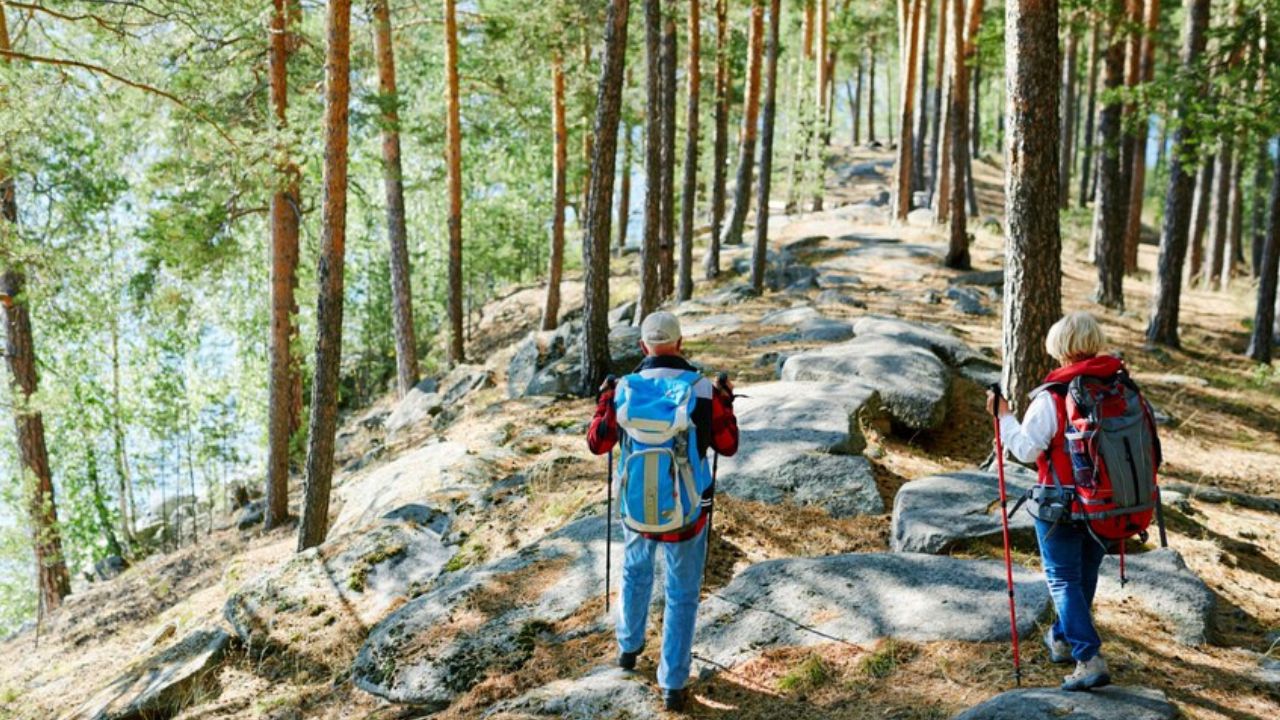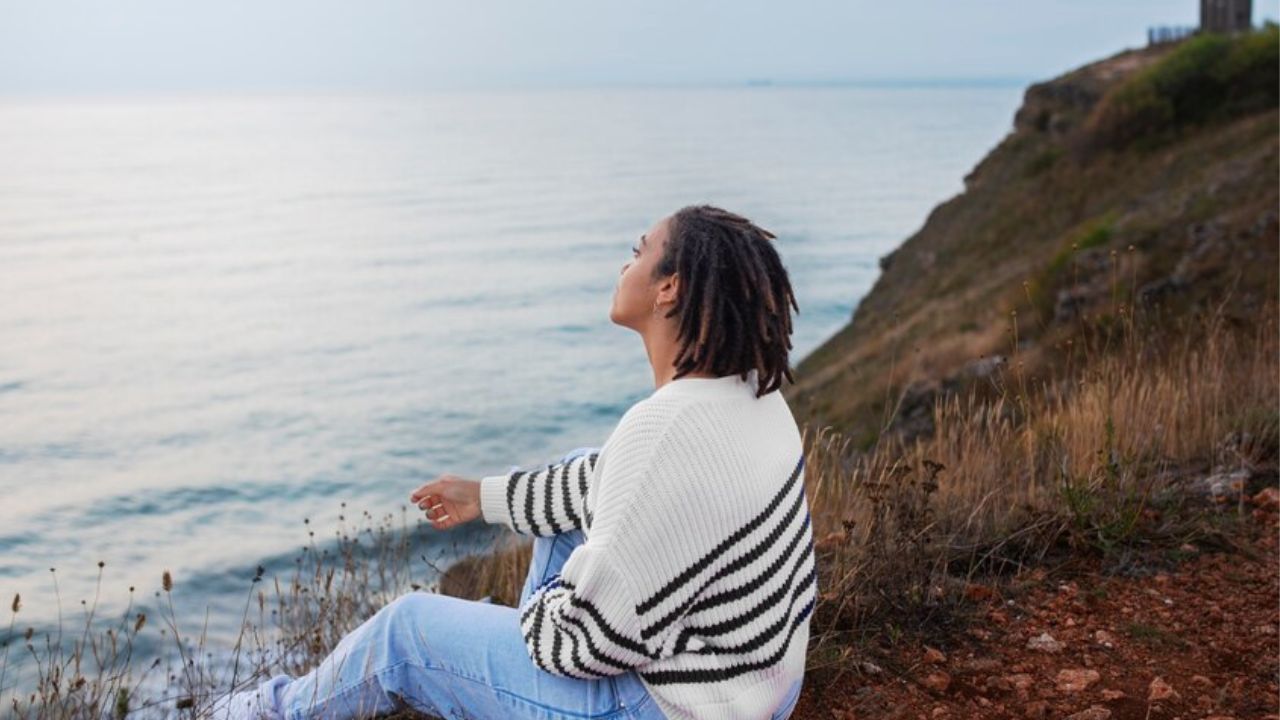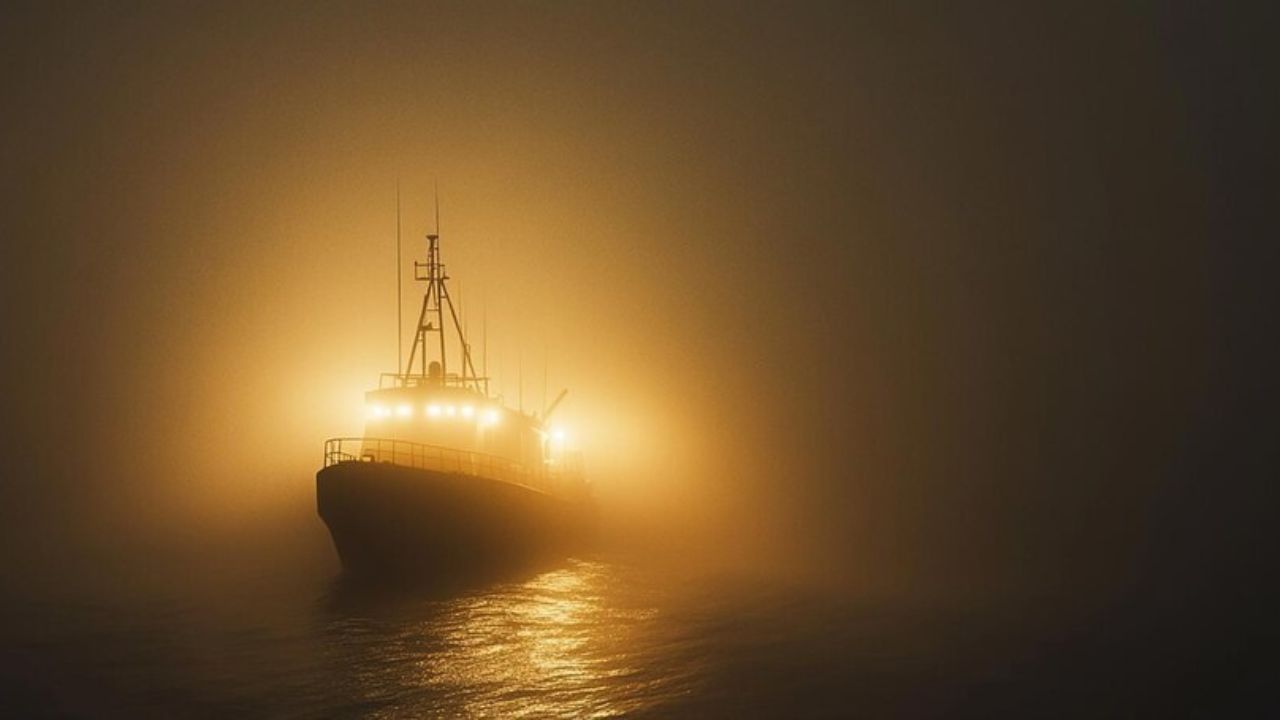Guide
The Best Hiking Trails: You Need to Explore

The Best Hiking Trails is an adventure that tests your stamina, fosters a connection with nature, and offers you amazing views. It is not just a stroll in the park.There are hiking routes around the world for everyone, from beginners to experts. Here’s a guide to some top trails that every outdoor enthusiast should add to their travel bucket list.
Appalachian Trail, USA
A Legendary Long-Distance Trail
One of The Best Hiking Trails paths in the world, the Appalachian Trail stretches over 2,190 miles from Georgia to Maine. Even though the full trail can take months to complete, lesser sections provide equally breathtaking experiences. Well-known sections like the White Mountains and the Smoky Mountains provide breathtaking views and difficult terrain.
Best Time to Hike
The best seasons to climb the Appalachian Trail are late spring and early fall, when there are less people and milder weather.
Inca Trail, Peru
A Journey Through History
The Inca Trail is a historical excursion, not merely a place to hike. This 26-mile journey culminates in the breathtaking site of Machu Picchu, passing through cloud forests, ancient ruins, and breathtaking mountain landscapes. This is a once-in-a-lifetime opportunity that blends adventure with cultural immersion.
Permits and Planning
The Inca Trail is extremely popular, and permits are required. These sometimes sell out months in advance. It is important to plan ahead.
Tour du Mont Blanc, Europe
A Multi-Country Adventure
An iconic European hike that passes through France, Italy, and Switzerland is the Tour du Mont Blanc. Hikers are treated to stunning alpine views, quaint communities, and a variety of landscapes throughout a distance of about 105 kilometers. This strenuous yet rewarding hike highlights the finest features of the Alps.
Duration and Difficulty
For individuals with limited time, shorter sections of the walk can be done in 10–12 days on average.
Milford Track, New Zealand
The “Finest Walk in the World”
Seasonal Considerations
The summer months of December through February in New Zealand are ideal for hiking the Milford Track because of the pleasant weather and lengthy days.
Mount Kilimanjaro, Tanzania
Conquering Africa’s Highest Peak
Climbing Mount Kilimanjaro is more than just a hike—it is an adventure of a lifetime. As the tallest mountain in Africa, reaching the summit requires tenacity and determination. The five to nine-day journey travels through five distinct climate zones, from cool mountaintop temperatures to lush forests.
Choosing Your Route
There are multiple paths to the peak, with differences in length and level of effort. While the Marangu Route provides shelters for overnight stays, the Machame Route is well-known for its picturesque views.
Pacific Crest Trail, USA
A West Coast Adventure
The 2,650-mile Pacific Crest Trail (PCT) passes through California, Oregon, and Washington on its way from Mexico to Canada. This long-distance trail passes through a variety of environments, including the lush woods of the Pacific Northwest and the parched deserts of Southern California.
Planning and Preparation
The PCT demands a great deal of planning and preparation to finish. Shorter distances, such as the John Muir Trail, provide a taste of the journey for individuals who are not ready to commit to the full trail.
Conclusion
These hiking routes are among the greatest on the planet; they all provide distinctive experiences and breathtaking scenery. There is a path out there that is ideal for you, whether you are searching for a strenuous multi-day trip or a beautiful day hike. Your next adventure is waiting for you, so lace up your boots, gather your belongings, and get ready to explore the great outdoors!
FAQS
What should I pack for a hiking trip?
Water, food, a map, a first aid kit, sunscreen, a hat, appropriate footwear, and a first aid kit are necessities.
How do I choose a hiking trail?
To find a path that works for you, take into account your degree of fitness, the trail’s difficulty, distance, and beauty.
Is it safe to hike alone?
If you have prior hiking experience, going solo can be safe, but make sure to stay on designated trails and notify someone of your plans.
What’s the best time of year to go hiking?
Depending on the area, spring and fall are often the best seasons to visit because of the moderate weather and less crowds.
How can I prevent blisters while hiking?
To lessen the chance of blisters, use hiking footwear that have been thoroughly broken in and well-fitting, moisture-wicking socks.
Guide
Discover Inner Calm: A Path to Peace

In the fast-paced world of today, discover inner calm and inner peace might be difficult. There are a lot of demands on our lives, including those from our jobs, families, and social obligations. Nevertheless, finding inner calm is not only feasible but also necessary to preserve equilibrium, wellbeing, and happiness in the midst of this maelstrom. Let us examine easy yet effective methods for developing inner serenity.
The Power of Breath
One of the easiest methods for relaxing your body and mind is to breathe. We often breathe shallowly or hold our breath unconsciously when under stress. Your body receives a signal to relax from your parasympathetic nervous system when you breathe deeply and deliberately. Try this the next time you are feeling stressed out:
- Breathe in slowly for four counts.
• Allow it to count to four.
• Let out a four-count breath.
Repeating this a few times can shift your focus and center your thoughts.
Mindfulness Meditation
Being completely present in the moment, judgment-free, is the essence of mindfulness. It is not necessary to sit for hours on end to get the benefits of mindfulness; even five to ten minutes a day may have a significant impact. By bringing your attention to the now and away from regrets about the past or fears about the future, mindfulness helps interrupt the cycle of worry, whether you are sitting quietly or just taking in your surroundings.
Disconnect to Reconnect
Technology constantly serves as a diversion. Our thoughts are always being bombarded with emails, social media, and notifications, which keeps us on high alert. It is imperative that you take occasional breaks from these distractions in order to restore your inner peace. Establish limits on screen time, especially before bed, and take short breaks from electronics during the day. You can utilize this time for introspection or just to unwind.
Engage in Physical Activity
Moving about is not only beneficial to your physical health but also to your brain clarity. Endorphins are naturally occurring hormones that are released during exercise. Find a way to exercise that brings you joy, whether it be yoga, a quick stroll, or ballroom dancing in your living room. Engaging in physical activity promotes physical and mental calmness by relieving tension and providing an opportunity to connect with your body.
Practice Gratitude
Concentrating on the good things in life may significantly change your perspective. Focusing on your blessings might help you change your focus from what is going wrong to what is going right when you are feeling nervous or upset. Create a thankfulness notebook or just spend a moment every day to list three things for which you are grateful in your mind.
Conclusion
It is not only possible to discover inner calm in a busy, frequently chaotic society, but it is also essential to preserving emotional equilibrium and general wellbeing. You may develop a calm mind and heart by adopting easy techniques like mindful breathing, meditation, turning off technology, exercising regularly, and cultivating thankfulness. Recall that cultivating inner peace is a lifelong process and may become more ingrained with time, patience, self-awareness, and perseverance.
FAQs
How can I start practicing mindfulness?
Begin by focusing on your breathing or observing your environment for five minutes each day. Increase the duration gradually as you get more at ease.
Does exercise really help reduce stress?
Yes, engaging in physical exercise generates endorphins, which elevate mood, lower stress levels, and promote relaxation.
How often should I disconnect from technology?
To help you focus and clear your head, try scheduling a tech break for at least thirty to an hour each day.
What are the benefits of deep breathing?
Deep breathing promotes relaxation by calming your nervous system, reducing tension, and aiding in mental clarity.
Can practicing gratitude really make a difference?
Of course! Experiencing gratitude causes you to refocus on the good things in your life, which can lessen worry and enhance mental health.
Guide
Sailing Safely with Light: A Guide to Navigating in Low Visibility

Even the most experienced sailors have a distinct obstacle when sailing at night or in bad visibility. At twilight, the water appears calmer, but dangers such as rocks, buoys, and other boats are more difficult to see. Knowing how to Sailing Safely with Light efficiently is crucial in these conditions. This is a guide explaining how light is essential for safe boat sailing.
Why Light is Crucial for Safe Sailing
One of a sailor’s most important weapons for preventing mishaps in the dark is light. It is not enough to simply carry a headlamp or flashlight with you; you also need to use deck lights and navigation lights, and you need to understand the significance of the Sailing Safely with Light many colors and signals that other boats use to announce their presence.
Types of Lights Used in Sailing
Navigation Lights
To be visible to other vessels, they are necessary. Others can tell which way you are traveling by looking at the red and green lights on the boat’s bow (front)—green for starboard (right) and red for port (left).
Stern Light
A white light at the rear of the boat to show where it is to other boats approaching from behind.
Masthead Light
This light, which is mounted high on the mast, makes your boat easier to see in the dark and is visible to other boats from a distance.
Understanding Light Signals from Other Boats
Lights are another means by which other vessels can signal their position and movements. For example:
Red over green indicates that a sailboat is moving.
Two all-round white lights piled vertically imply a towing vessel.
Knowing these indications helps you steer clear of danger and avoid crashes.
Best Practices for Sailing with Light
Ensure All Lights are Functional
Make sure all of your navigation lights are working properly before you set sail. Because other boats will not be able to see you, malfunctioning lights can be dangerous.
Use Deck Lights Sparingly
While deck lights might help illuminate your workspace, excessive usage of them may damage your night vision. To maintain night vision, stay with dim red lights in your cabin and cockpit.
Have Backup Lighting Options
Always keep extra batteries, headlamps, and handheld torches on hand for backup lighting. You will still have light sources in case of an electrical outage.
Monitor Weather and Sea Conditions
Visibility can be impacted by fog, rain, and other weather conditions. Make sure your lighting is positioned and brightened appropriately to take these things into consideration.
Conclusion
It takes a mix of good lighting, signal comprehension, and situational awareness to sail safely at night or in low visibility. Even in the darkest waters, you may navigate with confidence if you have the proper lights and are familiar with maritime signals. Remain vigilant, ensure you have everything you need, and make sure your lights are guiding you safely.
FAQs
Why are navigation lights important when sailing at night?
Having navigation lights on your boat is essential for keeping other boats aware of it and avoiding collisions, particularly in poor visibility situations like fog or darkness.
What do red and green lights on a boat indicate?
The boat’s port (left) side is indicated by red, and its starboard (right) side by green. These lights aid in communicating your direction of travel to other vessels.
Can deck lights affect my night vision?
Sure, your night vision might be affected by bright deck lights. For the best chance of maintaining your night vision while sailing, utilize modest red illumination in your cabin and cockpit.
What should I do if my navigation lights fail while sailing?
If your navigation lights fail, always keep backup lighting on board, like headlamps or handheld flashlights, to ensure other boats can still see you.
How can I enhance visibility during foggy conditions?
Make use of well-positioned, bright lighting, and keep an eye on the weather report. To lower the chance of an accident and to make sure your boat is visible from all directions, slow down.
Guide
Knowledge of Coffee: A Brewed Awakening

Knowledge of Coffee is more than simply a drink; it is a custom, a way of life, and for many people, a daily need. Let us explore the varieties, brewing techniques, history, and interesting facts of coffee as we delve into this intriguing beverage.
The Rich History of Coffee
Knowledge of Coffee starts in Ethiopia, where a goat herder named Kaldi discovered its stimulant effects after seeing his goats dance after eating the beans. By the fifteenth century, coffee spread to the Arabian Peninsula, becoming popular in Persia, Egypt, and the Ottoman Empire. When it reached Europe in the 17th century, coffeehouses opened up, turning into social hubs for conversation and gatherings.
Different Types of Coffee
Espresso:
Espresso, the base of many coffee beverages, is a strong shot made by squeezing hot water through ground coffee. It is the foundation for macchiatos, cappuccinos, and lattes.
Drip Coffee:
This method, which is popular in American homes, entails brewing coffee by pouring hot water through ground coffee that is placed in a filter. It is simple and, depending on the bean, yields a variety of flavors.
French Press:
Using a plunger, press down on the coarsely ground coffee after steeping it in hot water. A rich, full-bodied brew is the outcome.
Cold Brew:
Brewing Methods
Knowing several ways to brew coffee can improve your experience.
Pour-Over:
This technique yields a clear and tasty cup by letting you regulate the brewing duration and water temperature. Devices like the Hario V60 and Chemex are well-liked.
AeroPress:
Percolator:
This traditional method produces a strong brew by repeatedly cycling boiling water through coffee grounds, however it is less popular these days.
Fun Facts About Coffee
Second Most Traded Commodity:
Coffee is the most traded commodity in the world after oil, demonstrating its enormous popularity and economic significance.
Coffee Varieties:
Health Benefits:
According to studies, drinking coffee in moderation may enhance metabolism, lower the chance of contracting certain diseases, and improve cognitive performance.
Conclusion
Knowledge of Coffee is a global phenomenon that fosters interpersonal relationships rather than merely being a beverage. Whether you drink coffee black, with cream, or in a fancy café creation, learning about the subtleties of this cherished beverage will improve your enjoyment of it. Thus, keep in mind the lengthy history and complex procedures that led to the creation of your morning cup the next time you sip it.
FAQs
What is the difference between Arabica and Robusta coffee?
Robusta beans are stronger, more bitter, and contain more caffeine than Arabica beans, which offer a smooth, mild flavor and higher acidity.
How should I store coffee beans?
Store coffee beans in a cool, dark place in an airtight container to maintain freshness. Avoid keeping them in the freezer or refrigerator, as moisture can alter the flavor.
What is the best way to brew coffee at home?
Although the ideal technique is a matter of taste, popular choices include pour-over, French press, and drip brewing. Try a few and see which one you like best!
Is coffee good for health?
Drinking coffee in moderation links to certain health benefits, such as improved cognitive performance and a lower risk of specific illnesses. However, overindulging may lead to unfavorable consequences.
Can I drink coffee while pregnant?
Caffeine use should be kept to a minimum when pregnant. The majority of medical experts advise limiting intake to no more than 200 mg daily, or about one 12-ounce cup of coffee. See a healthcare professional at all times for individual advice.
-

 Celebrity12 months ago
Celebrity12 months agoJulia Rejean Moorhead: A Trailblazer in Her Field
-

 News12 months ago
News12 months agoThe Ever-Evolving World of News:Global Events Unfolding Today
-

 INFORMATION12 months ago
INFORMATION12 months agoUnderstanding Information: Its Role and Impact in Our Lives
-

 Sports12 months ago
Sports12 months agoGonzaga Basketball: The Rise of a College Hoops Powerhouse
-

 Sports12 months ago
Sports12 months agoThe Incredible Benefits of Sports: Boost Your Life on All Fronts
-

 Business12 months ago
Business12 months agoRogue Trader Rotate Grand Strategist:The Dynamic World of Trading
-

 Health12 months ago
Health12 months agoThe Ultimate Guide to Health: Tips and Strategies for a Healthier
-

 Technology9 months ago
Technology9 months agoFascinating Facts About Astronauts:The Ultimate Guide
